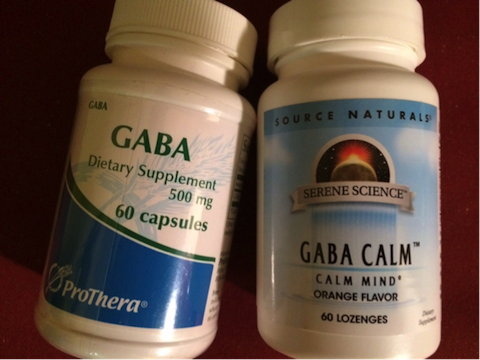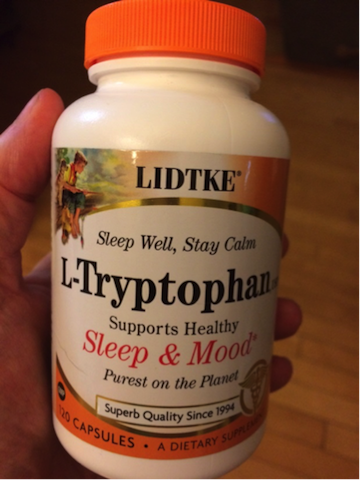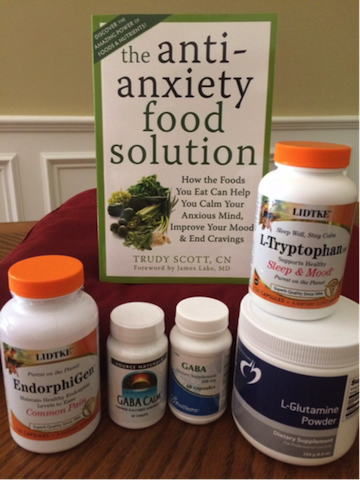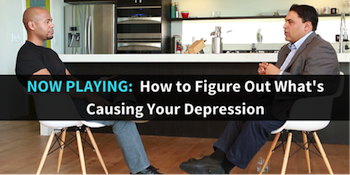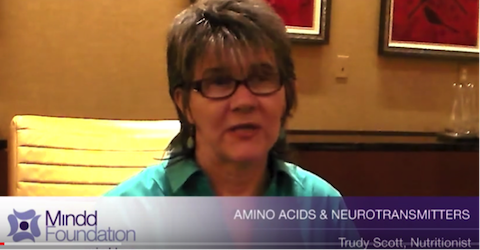
This time last year folks from the MINDD Foundation interviewed me at the Integrative Medicine for Mental Health conference. The MINDD Foundation helps practitioners and patients discover and implement effective treatments for Metabolic, Immunologic, Neurologic, Digestive, Developmental conditions that often affect the mind.
In this video I share about the amino acids tryptophan and 5-HTP for raising low serotonin levels, and the amino acid GABA for raising low GABA levels.
Here is the Amino Acids Mood Questionnaire from The Antianxiety Food Solution so you can see if low serotonin or low GABA may be a factor. Be sure to check the Amino Acid Precautions and work with your doctor if you are taking an SSRI.
Here are some useful related blog posts on the topic of amino acids:
- Targeted individual amino acids: what do we really mean?
- Amino acids for anxiety – which ones and for how long?
- The Anxiety Summit – Pyroluria, Amino Acids and Anxiety: Troubleshooting when you are not getting results
- The Antianxiety Food Solution Amino Acid and Pyroluria Supplements
- Should I use 5-HTP for a 5 year old boy who has been “glutened”?
It’s very timely to be sharing this information. In the recent webinar I shared that we know benzodiazepines do patients more harm than good and a brand new study shows that the psychiatric drug called Paxil, claimed to be a safe and effective treatment for depression in adolescents, is actually ineffective and associated with serious side effects. It is a reanalysis of an influential study originally published in 2001.
While the amino acids and other nutrients are powerful, we must always remember to get the foundations in place – real whole traditional food, no sugar, no caffeine and no gluten. This paper published earlier this year says it perfectly: Nutritional medicine as mainstream in psychiatry
Evidence is steadily growing for the relation between dietary quality (and potential nutritional deficiencies) and mental health, and for the select use of nutrient-based supplements to address deficiencies, or as monotherapies or augmentation therapies.
We advocate recognition of diet and nutrition as central determinants of both physical and mental health.
I will add that many of the recent “real whole traditional food” papers are not yet mentioning the mental health effects of gluten. Many say to include “whole grains.” So I’d like to share this wonderful testimonial recently posted on this blog: Bipolar, disruptive mood or gluten and junk food?
Ever since childhood I could not concentrate and focus at school. This seriously affected my grades. This continued into my working career and caused me to loose several jobs. Whilst I had periods of wellness this condition always returned to plague me. In one job as a retail manager I became driven for a six month period and then I crashed into deep depression sleeping for 18 hours a day. Prior to this crash I was stuffing my face with bread and fats. I was stressed and anxious. Ten years later this happened again.
I was diagnosed with bipolar 2. Only now at the age of 58 I discovered that I have an intolerance to wheat (gluten) after an elimination diet I feel so much better – all my symptoms are gone. It is like a MIRACLE! MY diagnosis is nonsense.
If the information in this video and article sounds intriguing and you’d like guidance with using targeted individual amino acids like tryptophan, 5-HTP and GABA (as well as glutamine and DPA/endorphigen), together with making diet and lifestyle changes, stay tuned for the launch of The Amazing Aminos for Anxiety homestudy group program.
You can add your name in the comments if you’d like to be notified when it launches. You’re also welcome to sign up here to be notified when we have more details about the start date.
Feel free to ask additional questions in the comments.
